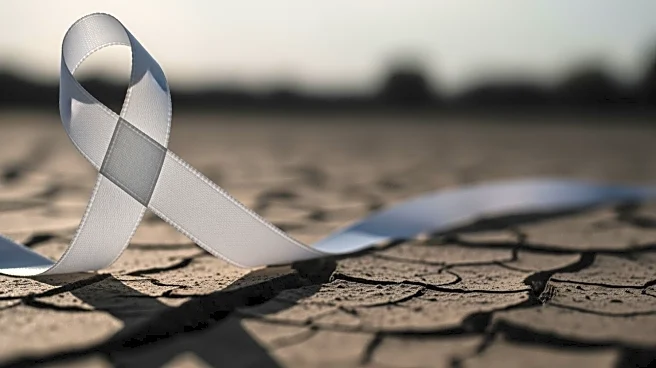What's Happening?
The United States has withdrawn its financial support from Gavi, a public-private partnership focused on immunizing children and adolescents against infectious diseases, including human papillomavirus
(HPV), which causes cervical cancer. This decision, announced by US Health and Human Services Secretary Robert F. Kennedy Jr., has led to a significant funding shortfall for Gavi, potentially impacting its HPV vaccination program. Gavi has been instrumental in vaccinating millions of girls worldwide, particularly in lower-income countries, as part of the World Health Organization's strategy to eliminate cervical cancer. The US was one of Gavi's largest supporters, contributing about 13% of its funding. The withdrawal could result in a nearly $3 billion budget shortfall, forcing Gavi to scale back its anti-cancer campaign.
Why It's Important?
The US funding cut poses a major threat to global health initiatives aimed at eliminating cervical cancer, a preventable disease that claims the lives of hundreds of thousands of women annually. Gavi's HPV vaccination program has been crucial in providing access to vaccines in low- and middle-income countries, where cervical cancer rates are highest. The funding shortfall could limit vaccine availability, reducing the program's reach and effectiveness. This decision may also undermine trust in vaccines, as Kennedy has been a vocal critic of vaccine programs. The potential reduction in vaccine access could leave many girls vulnerable to cervical cancer, impacting global health outcomes and efforts to achieve WHO's vaccination targets.
What's Next?
Gavi is engaging with the US government to restore funding, while other countries have increased their financial commitments to the organization. Gavi's leadership will meet to decide how to allocate resources amid the funding shortfall, aiming to minimize the impact on children's health. The organization continues to support countries launching HPV vaccination programs and those conducting routine vaccinations. The US Congress has approved some funding for Gavi, but the release of these funds remains uncertain. The global health community is watching closely to see how these developments will affect vaccine availability and cervical cancer prevention efforts.










